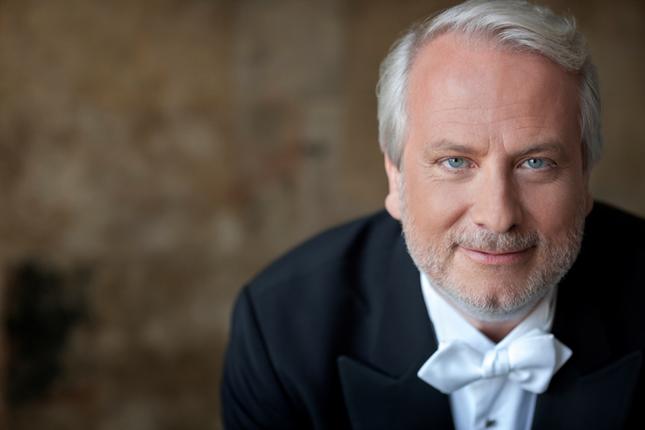WNO’s ‘Tristan and Isolde’: the Overpowering Wagner Is in Charge
By • January 17, 2014 0 1771

Even under normal conditions, the opening of the Washington National Opera season qualifies as an event—it’s an occasion highly anticipated by opera aficionados and music lovers. It’s loaded with anticipation for the season as a whole, a major part of the city’s cultural and social scene.
But by any standard, the opening performance of the WNO’s season-opening production of Richard Wagner’s “Tristan and Isolde,” Sunday afternoon, directed by Neil Arnfield, with WNO Musical Director Philippe Auguin, conducting the WNO orchestra with impassioned fervor, was almost an uber-event.
Consider that this was artistic director Francesca Zambello’s beginning of a first full season in a world, like many others, where first impressions and efforts count for a lot.
Consider that this was after all Wagner, German and European 19th-century romanticism in high dudgeon in one of the most original—and difficult to stage, sing and perform operas ever composed.
For audience and artists alike, this is a night or day at the opera that requires full commitment. If you arrived at the opening a half an hour before curtain time at 1:30 p.m., taken in three acts and two 20-minute or so intermissions and left right at the end before all the applause and cheers commenced in earnest, you will have taken out pretty much a full afternoon of your life, four-and-a-half hours all told — or the length of close to two Sunday afternoon football games, including another dismal Redskins defeat, an afternoon of brunch and two movies, or a good chunk of season three of HBO’s “Game of Thrones.”
Oh, we almost forgot to mention that just a week before “Tristan and Isolde” was scheduled to open, star soprano Deborah Voigt, after consulting with Zambello, withdrew from the role, generally considering an exhausting, punishing role for body, soul and voice. Swedish soprano Irene Theorin, a Wagnerian veteran who had performed Brunnhilde in “Siegfried” at the WNO in 2009 was brought in to take on the role.
Now, that’s an opera opening that’s — well — downright operatic, creating a stir of expectation, and perhaps not a little dread, such feelings often present at openings for Wagner works. The sheer length and size of the production, the effort in time and attention on the part of the audience was daunting. It was, in the end, also entirely worth it, exceeding any expectations one might have held, and demolishing whatever fears might have existed.
To get the most open-ended part of the evening out of the way, Theorin didn’t just hold her own with the part of Isolde, which is frightingly large and taxing, especially in the first section of the opera, she took ownership of the part. In contemporary parlance, she nailed it, showing her particular gifts which included a powerful voicer that can and needs to hold its own with the orchestra, because this is, after all, Wagner. The opera is more than Wagner, with a score that, as Aguin, a Frenchman adept and expert with Wagner’s methods, suggests, “has the music act as a character.” Theorin seemed physically and dramatically comfortable with Wagner’s idea of a woman consumed by love, in stages. With Theorin, who cuts in an imposing and moving figure. We didn’t just hear Isolde. We felt her anguish, her girlish delights, her discovery of love. That was some potion, that potion.
This production is—in a way—Theorin’s and Aguin’s show. “Tristan and Isolde” is an opera where you really listen to the orchestral music because it cues you, it takes over. Often, it’s an illustration of thought, story and feeling, every bit as the voices and the libretto, the words, written by Wagner himself.
The story comes out of Arthurian tales by way of German writer Gottfried von Strassburg. It is about lovers ill met and then totally entranced, enhanced and immolated by love. Tristan is one of the noblest knights of the Cornish king Marke and has been sent to bring the Irish princess Isolde as the king’s bride after a war in which the Irish were crushed. In that war, Tristan killed Isolde’s bethrothed, a fact of which he is unaware, and Isolde also saved his life with her special healing gifts. The embittered Isolde swears revenge and plans to poison Tristan with a potion, but her loyal maid instead gives her a love potion instead.
Drinking the potion, the two fall instantly, dangerously, totally in love to a point where ideas of love and death almost merge. It is a love as everything, sex, heaven and earth, and, most significantly, night and day, life and death. This is Wagner by way of philosopher Arthur Schopenhauer. It dovetails with his ideas about total theater, the opera, in fact, is almost a guileless demonstration of theory as a work of genius-level art. This is the Wagner we know and love, that is, if you do to begin with.
After the lengthy idyll enjoyed by the lovers in the forest, this cannot have good results and portends disaster. Thanks to the treacherous and jealous Melot, they’re discovered by the king. Tristan is severely wounded, and everything goes to hell or somewhere else.
In the end, Tristan lies dying and has to carry the final act, alone with his loyal comrade Kurwenal at his ancestral home, awaiting against hope for Isolde. This is a challenge for tenor Ian Storey as Tristan who has to hold the stage, and be strong enough with his voice to duel with Wagner’s ravishing, challenging music which veers through different styles like a ship battered at sea. Storey does not always succeed. Also at the end, everyone shows up—some to die thankfully like Melot, Isolde too late to heal Tristan, and willing herself to die with him in the famous tear-drawing (lots from many in the audience) “Liebestod” or love death.
There is the certain so-called “Wagnerian” aspect to Wagner’s music—some of loudest, full-orchestra sounds you hear come oddly as no surprise, but the nuanced, quieter parts are delicious and moving in their depth and, surprisingly, in their tenderness.
There’s something else Wagnerian here, too. Opera isn’t known for its “book,” the quality of its librettos as literature. In this case, Wagner also wrote the libretto: after a while, the words, like the chords start to fall down like a sometimes salving, sometimes burning rain. Even in English translation, it’s a very German kind of rain—words and sentences as proclamations, spitting out whole all-embracing ideas, love, death light and darkness, otherness, the sadness of the day. Tristran and Isolde often don’t sing in sentences. It’s all nouns and adjectives: it’s the music that act as verbs, as action, as the heart in total abandon and flight.
Wagner, performed, played, acted and staged this originally. He’s a bully who will not be ignored, chastened, or cut by a minute. And at journey’s end with Tristan and Isolde, even if their boat takes its own sweet time arriving at the shore, it is more than worth it. You don’t have to love opera or like Wagner to be swept up in the waves.
- Yelp
- Philippe Auguin | Dario Acosta





